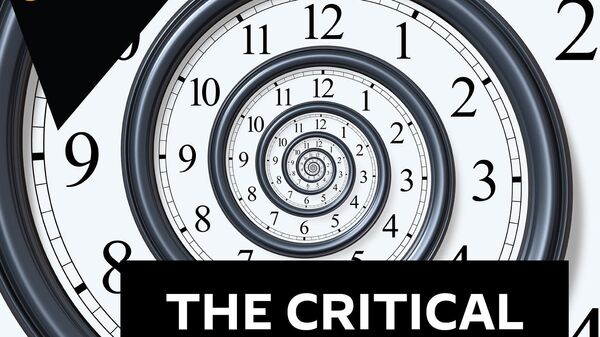On this episode of The Critical Hour, Dr. Wilmer Leon is joined by Alex Rubinstein, MintPress News analyst and journalist.
Federal Judge Claude M. Hilton in Alexandria, Virginia, has ordered Chelsea Manning, the former US Army intelligence officer and whistle-blower who served seven years in prison for passing information to WikiLeaks, to be held in jail for refusing to answer questions before a grand jury. Manning will be held until she testifies or until the grand jury concludes its work, the judge ruled in the closed contempt hearing earlier today. What's going on with Chelsea Manning?
It started as a resolution condemning anti-Semitism. Then, anti-Muslim bias was added in. After that came white supremacy. And by the end, it cited "African-Americans, Native Americans, and other people of color, Jews, Muslims, Hindus, Sikhs, immigrants and others" victimized by bigotry. Notably absent were Catholics who don't like puppies and Protestants who don't like re-runs of "Barney Miller." The resolution condemning "hateful expressions of intolerance" passed the House of Representatives by an overwhelming 407 to 23 vote late yesterday afternoon. Twenty-three Republican lawmakers voted against the resolution, arguing the measure was "watered down" and failed to properly condemn Rep. Ilhan Omar's (D-MN) recent controversial remarks on US-Israel relations.
The sentencing of Paul Manafort was highly anticipated, but it was an unlikely candidate to become the latest example of a conflict that has vexed legal professionals and activists for decades: systemic inequality in the criminal justice system. It's interesting to me that it takes this sentencing to raise this issue. For example, in 2009, Judge T.S. Ellis III was the judge in the corruption case of former United States Representative William J. Jefferson, who was indicted and convicted of violating the Racketeer Influenced and Corrupt Organizations (RICO) Act. On August 5, 2009, he was found guilty of 11 of 16 corruption counts. On November 13, 2009, Jefferson was sentenced to 13 years in prison, the longest sentence given to a congressman. He began serving his sentence in 2012, and in 2017, Judge Ellis addressed Jeffersons's appeal, throwing out seven of his convictions; in December of that year, Jefferson pleaded guilty to three charges in a retrial, and Ellis sentenced him to time served, making Jefferson a free man. Yet, as Judge Ellis handed down Manafort's sentence in a jam-packed Alexandria, Virginia, courtroom Thursday, and observers digested the judge's decision — 47 months — Manafort's case was immediately perceived as a high-profile instance of the justice system working one way for a wealthy, well-connected man, while working in another, harsher way for indigent defendants facing lesser crimes.
During a Senate Foreign Relations Committee hearing on Thursday, Republican Sen. Marco Rubio condemned Venezuelan President Nicolás Maduro as a "clear danger" and a "threat to the national security of the US." As was to be expected, the hearing was filled with plenty of threats and talk of flipping "military elites" and enforcing tougher sanctions. At the same time, Venezuela was suffering one of its most severe power outages in recent history, which stretched into a second day Friday, with hospital patients languishing in the dark, most supermarkets closed, and phone service largely out in the oil-rich but economically collapsing country. Maduro blamed the outage on sabotage by the US government, which has backed an opposition effort to force out the leader. He offered no evidence for the claim and ordered schools and offices closed Friday because of the blackout. But perhaps unexpected was just how out in the open and brazen were Rubio's own admissions of how far he's willing to go in promoting regime change in Caracas. In public testimony, he called on the US to promote "widespread unrest" in Venezuela in order to eventually bring down the Maduro government.
GUESTS:
Alex Rubinstein — MinstPress News analyst and journalist.
Jim Kavanagh — Political analyst and commentator and editor of The Polemicist.
Daniel Lazare — Journalist and author of three books: "The Frozen Republic," "The Velvet Coup" and "America's Undeclared War."
We'd love to get your feedback at radio@sputniknews.com


